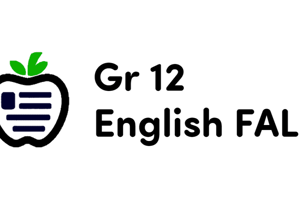Podcast
Questions and Answers
What does a compound modifier consist of?
What does a compound modifier consist of?
- Phrases separated by commas
- A single word
- Words that join together to modify a noun (correct)
- Only adjectives
What is the primary use of hyphens?
What is the primary use of hyphens?
- To connect two or more words into a single concept (correct)
- To separate sentences
- To enhance style
- To indicate a pause in writing
How should you use a hyphen with a spouse's name?
How should you use a hyphen with a spouse's name?
To combine their last names.
How should written numbers from 21 to 99 be formatted?
How should written numbers from 21 to 99 be formatted?
What does a hyphen substitute for?
What does a hyphen substitute for?
What word is recommended to be used in formal writing?
What word is recommended to be used in formal writing?
When are hyphens used in regards to syllable breaks?
When are hyphens used in regards to syllable breaks?
What do dashes indicate in writing?
What do dashes indicate in writing?
Dashes can be used as a substitute for ___, ___.
Dashes can be used as a substitute for ___, ___.
For more emphasis, dashes can also be used as substitutes for ___.
For more emphasis, dashes can also be used as substitutes for ___.
How are dashes typically described in relation to hyphens?
How are dashes typically described in relation to hyphens?
What is an appositive?
What is an appositive?
Use a dash to set off an ___ ___ that already includes commas.
Use a dash to set off an ___ ___ that already includes commas.
Which of the following prefixes require hyphenation before proper nouns?
Which of the following prefixes require hyphenation before proper nouns?
Hyphenate a ___ ___ with a number when it precedes a noun.
Hyphenate a ___ ___ with a number when it precedes a noun.
A dash can anticipate a shift in ___ at the end of a sentence.
A dash can anticipate a shift in ___ at the end of a sentence.
A dash is often used to set off a ___ at the end of a sentence to offer a significant comment about the main clause.
A dash is often used to set off a ___ at the end of a sentence to offer a significant comment about the main clause.
What do parentheses typically indicate?
What do parentheses typically indicate?
Which punctuation marks have the order of greatest emphasis?
Which punctuation marks have the order of greatest emphasis?
Do not put ___ before or after hyphens and dashes.
Do not put ___ before or after hyphens and dashes.
What do parentheses around letters or numbers do in a series?
What do parentheses around letters or numbers do in a series?
What is the use of parentheses around abbreviations?
What is the use of parentheses around abbreviations?
Flashcards are hidden until you start studying
Study Notes
Compound Modifiers
- Consist of words that function together to modify a noun.
- Examples include "middle-class values" and "self-fulfilling prophecy."
Hyphens (-)
- Connect two or more words (or numbers) into a single idea, particularly for adjectives.
Spouse's Name
- Use a hyphen to combine the last names of spouses.
Numbers 21-99
- Hyphens are used in written forms of numbers (e.g., "twenty-one").
Hyphen Usage
- A hyphen can substitute for the word "to."
Formal Writing
- Use the word "to" in formal contexts instead of a hyphen.
Syllable Breaks
- Hyphens indicate where a word splits between lines, especially for complex syllable structures (e.g., re.act).
Dashes
- Used to indicate interruptions in sentences (e.g., "An organic solvent will only work with—" when interrupted).
Replacing Expressions
- Dashes can substitute for phrases like "it is" or "they are," functioning similarly to colons but less commonly used in formal writing.
Emphasis
- Dashes serve as substitutes for parentheses to add emphasis in sentences.
Dashes vs. Hyphens
- Dashes are double the length of hyphens (--).
Appositives
- An appositive adds explanatory information to a preceding noun.
Appositive Phrases
- Use dashes to set off appositive phrases that already include commas.
Prefix Hyphenation
- Hyphenate prefixes such as pro-, anti-, post-, pre-, neo-, and mid- when used before proper nouns.
Compound Modifiers with Numbers
- Hyphenate compound modifiers when they include a number and precede a noun (e.g., "one-way street").
Tone Shift
- A dash can indicate a tone shift at the end of a sentence.
Subordinate Clauses
- Dashes often set off a subordinate clause at the end of a sentence to provide significant commentary.
Parentheses
- Used to identify information, afterthoughts, examples, and clarifications. They can contain full sentences, fragments, or brief terms.
Emphasis Order
- The order of emphasis varies: dashes > parentheses > commas.
Spacing with Hyphens and Dashes
- Do not include spaces before or after hyphens and dashes.
Parentheses in Lists
- Parentheses around letters or numbers in a list enhance readability.
Abbreviations
- Use parentheses around abbreviations to denote shortened names (e.g., UVU).
Studying That Suits You
Use AI to generate personalized quizzes and flashcards to suit your learning preferences.




